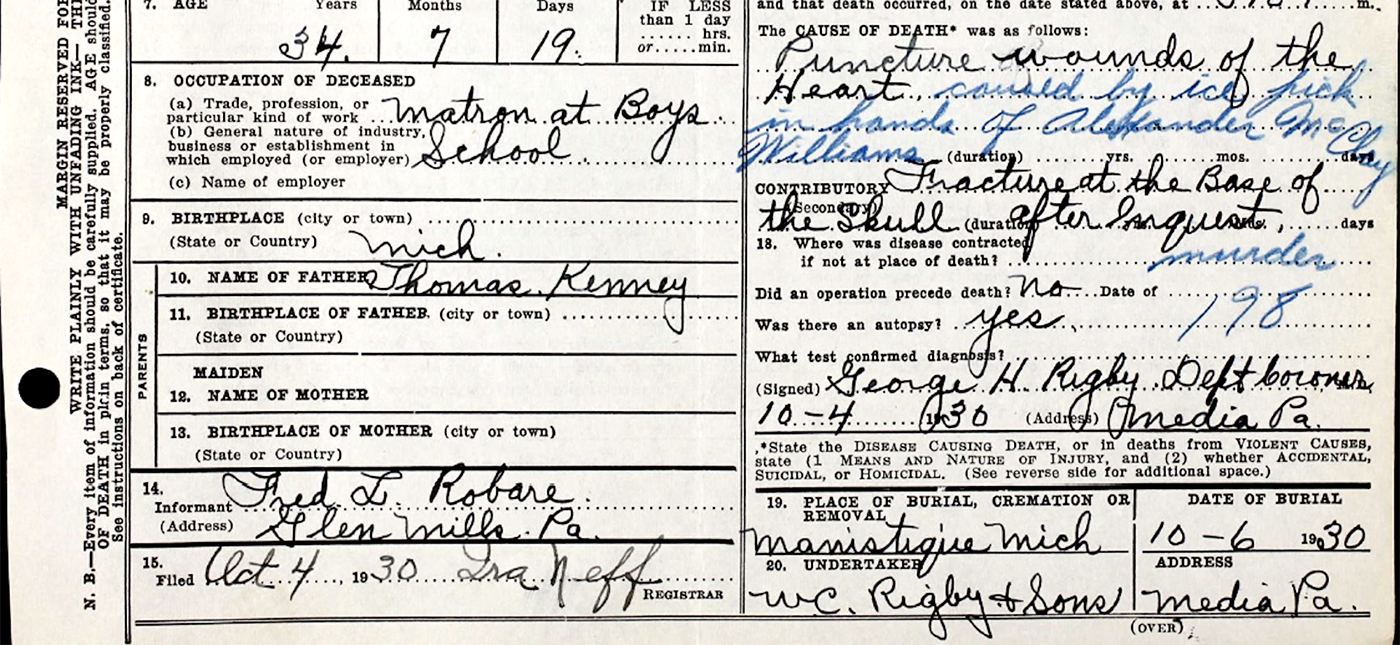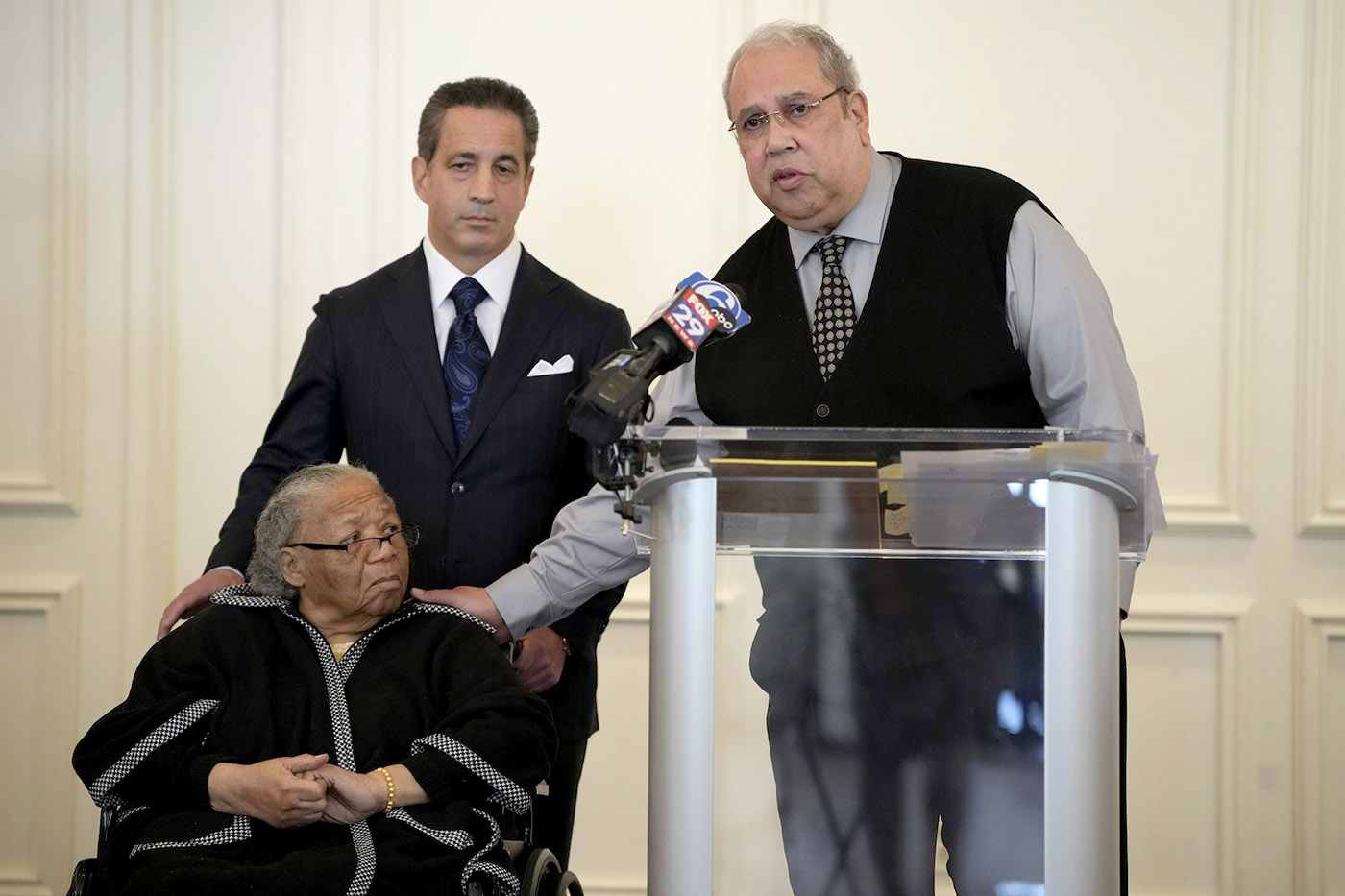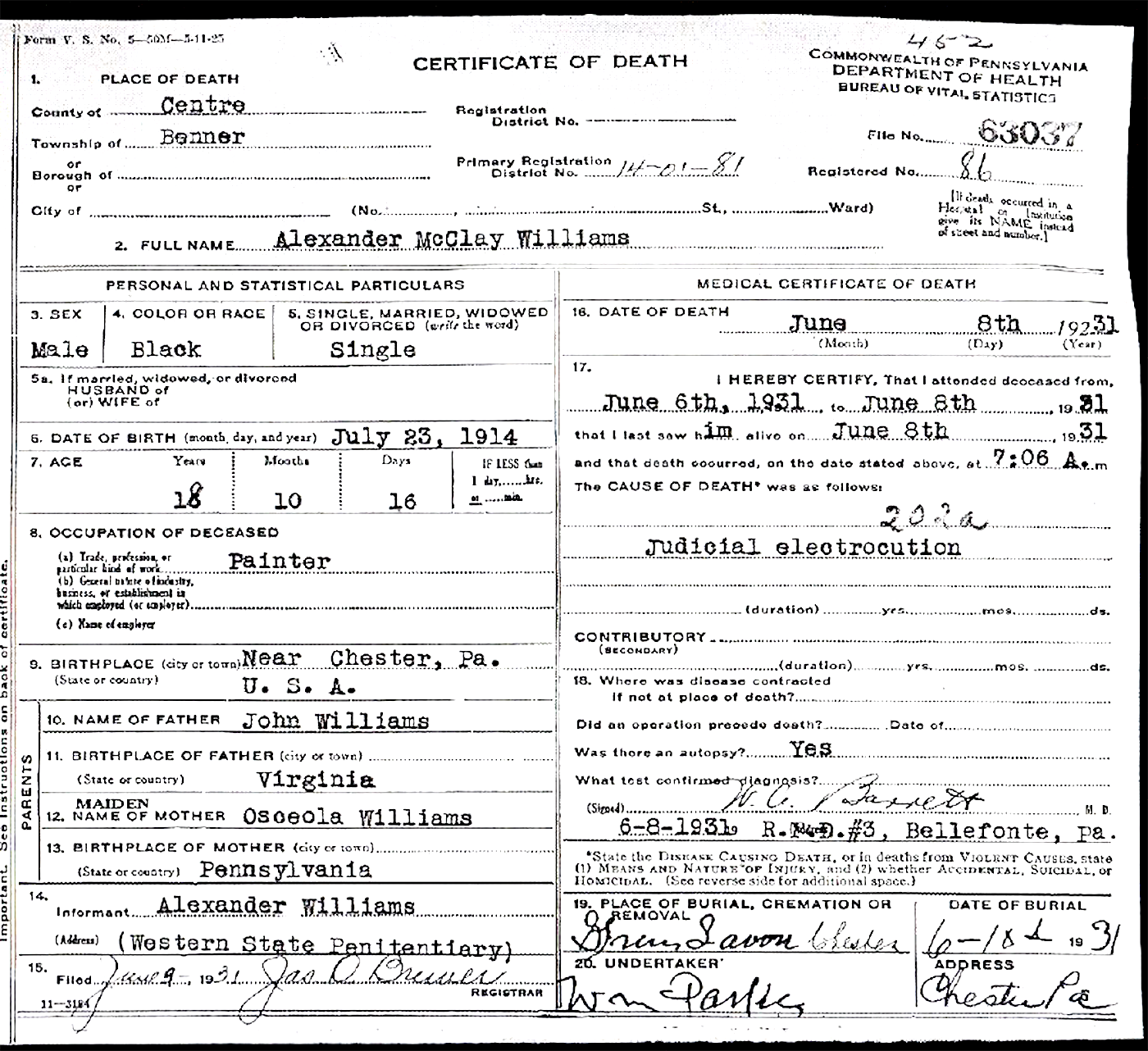Justice for Alexander McClay Williams: A Family’s Quest to Clear His Name
Francis Page Jr. | 5/29/2024, 10:02 a.m.
In 1931, 16-year-old Alexander McClay Williams became the youngest person executed in Pennsylvania's history. Convicted of murdering Vida Robare, a matron at the Glen Mills School, a youth detention facility near Philadelphia, his execution by electric chair left his family in anguish and shame. For 85 years, his sister, Susie Williams Carter, believed he was guilty. However, new evidence has surfaced, prompting Carter and her family to seek justice for Alexander and clear his name.
A Family’s Painful History
Carter, now 94, was only a year old when her brother was executed. Her family rarely discussed Alexander due to the immense pain and heartbreak. In 2015, new evidence emerged that shifted the long-held belief about his guilt. Carter, the last living sibling of 13 children, discovered details that suggested Alexander's innocence. This discovery led the family to file a lawsuit against Delaware County, claiming Alexander was wrongfully arrested, unfairly tried, and executed for a crime he did not commit.

The Crime and the Controversial Conviction
On October 3, 1930, Vida Robare’s body was found with 47 stab wounds, two broken ribs, and a skull fracture. Alexander, a resident at Glen Mills School, was quickly singled out by authorities without clear reason. Represented by William Ridley, the first African American lawyer in Delaware County, Alexander faced an all-white jury and was convicted in less than four hours. There were no eyewitnesses or forensic evidence linking him to the murder, and an adult’s bloody handprint found at the scene was never introduced at trial.
Uncovering the Truth
Sam Lemon, Ridley's great-grandson, spent decades researching Alexander’s case, uncovering numerous discrepancies. Lemon found altered death certificates and suspicious annotations on official documents. He also conducted time trials, demonstrating the impossibility of Alexander committing the murder within the given 20-minute window. These findings convinced Lemon of Alexander’s innocence, leading him to present his research to the Williams family.

The Fight for Exoneration
In 2017, Lemon, alongside attorney Robert Keller, reopened Alexander’s case. In June 2022, a judge ordered a retrial, and the district attorney's office declined to pursue the case further, acknowledging the wrongful charges. Alexander was officially exonerated by Pennsylvania Governor Tom Wolf in October 2022. This exoneration came 91 years after his wrongful execution.
A Legacy of Injustice
Alexander’s case is a stark reminder of the systemic injustices that have disproportionately affected people of color. In 2023, nearly 84% of exonerations in the US were people of color, with Black individuals comprising almost 61% of these cases. The most common factor in these wrongful convictions was official misconduct. The Emmett Till Legacy Foundation, which honors the memory of another wrongfully accused Black teen, expressed solidarity with the Williams family, emphasizing the ongoing struggle for justice and accountability.

Raising Awareness and Seeking Justice
Carter remains committed to clearing her brother’s name, hoping to raise awareness about the wrongful convictions that continue to plague young people of color in the US. "I want them (the public) to realize that these things are still going on," Carter said. "Something should be done to stop it." She recalls the immense pain her parents endured during Alexander’s trial and execution, a trauma that has persisted for generations.
The Williams family’s pursuit of justice highlights the enduring impact of wrongful convictions and the importance of addressing historical injustices to prevent future tragedies. Through their efforts, they hope to bring closure to Alexander’s story and ensure that such injustices are not repeated.
For more info, visit cnn.com





